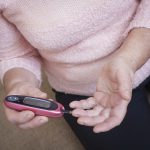
Growing up is difficult, and in today’s society, where mental health issues run rampant and undiagnosed, the likelihood that thousands or even millions of teens across the country are suffering in silence isn’t just a possibility, it is a probability.
An estimated 11.4 per cent of US adolescents had at least one major depressive episode in a given year, so says the 2014 National Survey on Drug Use and Health.
The same shocking figures are likely in the UK, and with the state of mental health care in this country having come under fire over the last few years, it sparks a worry about just how many young adults out there need help but aren’t getting it.
One option to help those would be simply to screen everyone at that age to see if they are at risk or showing signs of depression or mental health problems.
However, the flip side to this would be that it could lead to over-diagnosis, put pressure on young people, and overall make the issue worse. Furthermore, the NHS is currently unable to deal with the mental health patients that it has, let alone try to test and treat thousands more young people on the very limited budget that it runs on at the moment.
The answer possibly lies in education; letting people know that it is ok to have a mental health crisis, and widespread acceptance to stop the stigmatisation of these kinds of issues. It would help make people feel more comfortable about coming forward and seeking help on their own terms.


